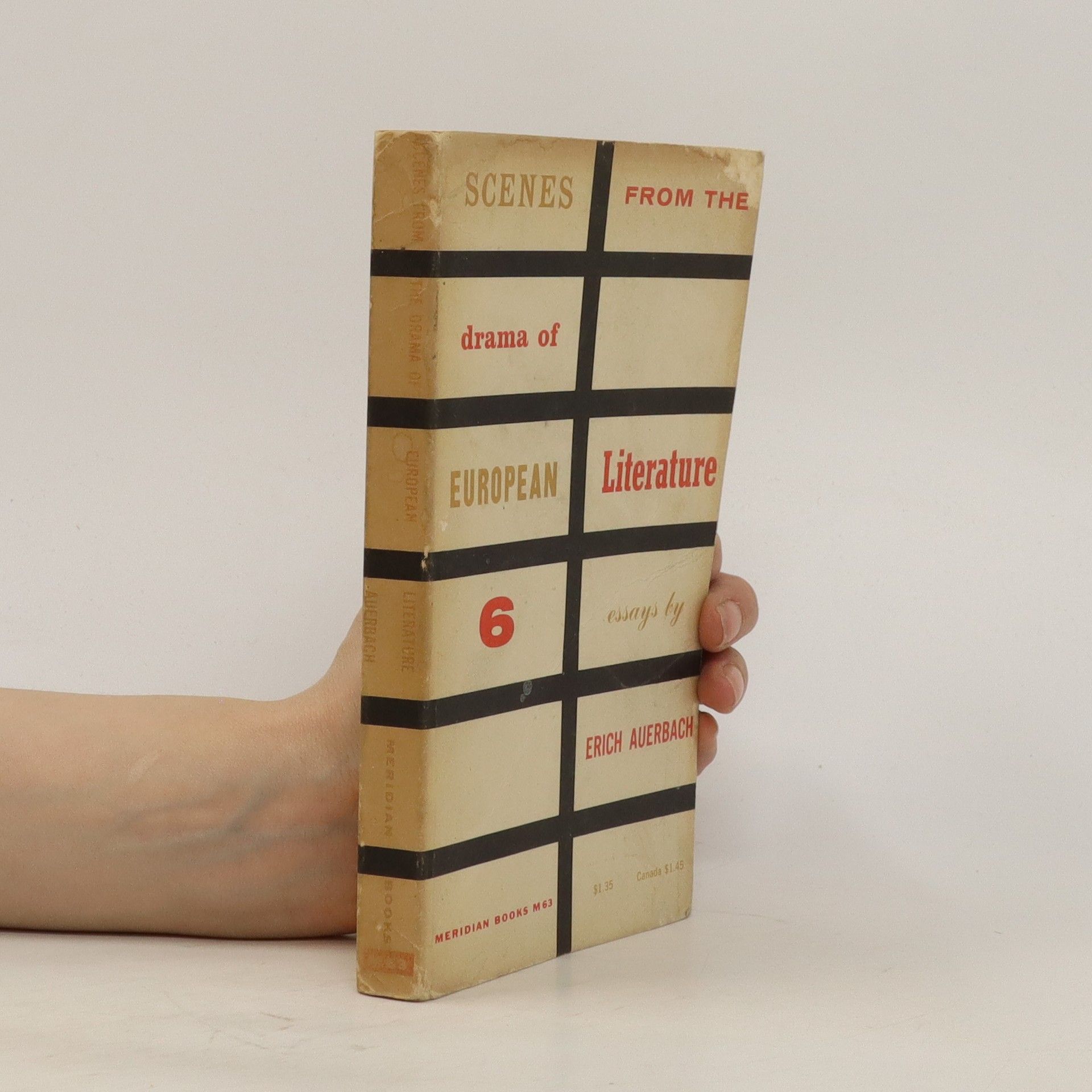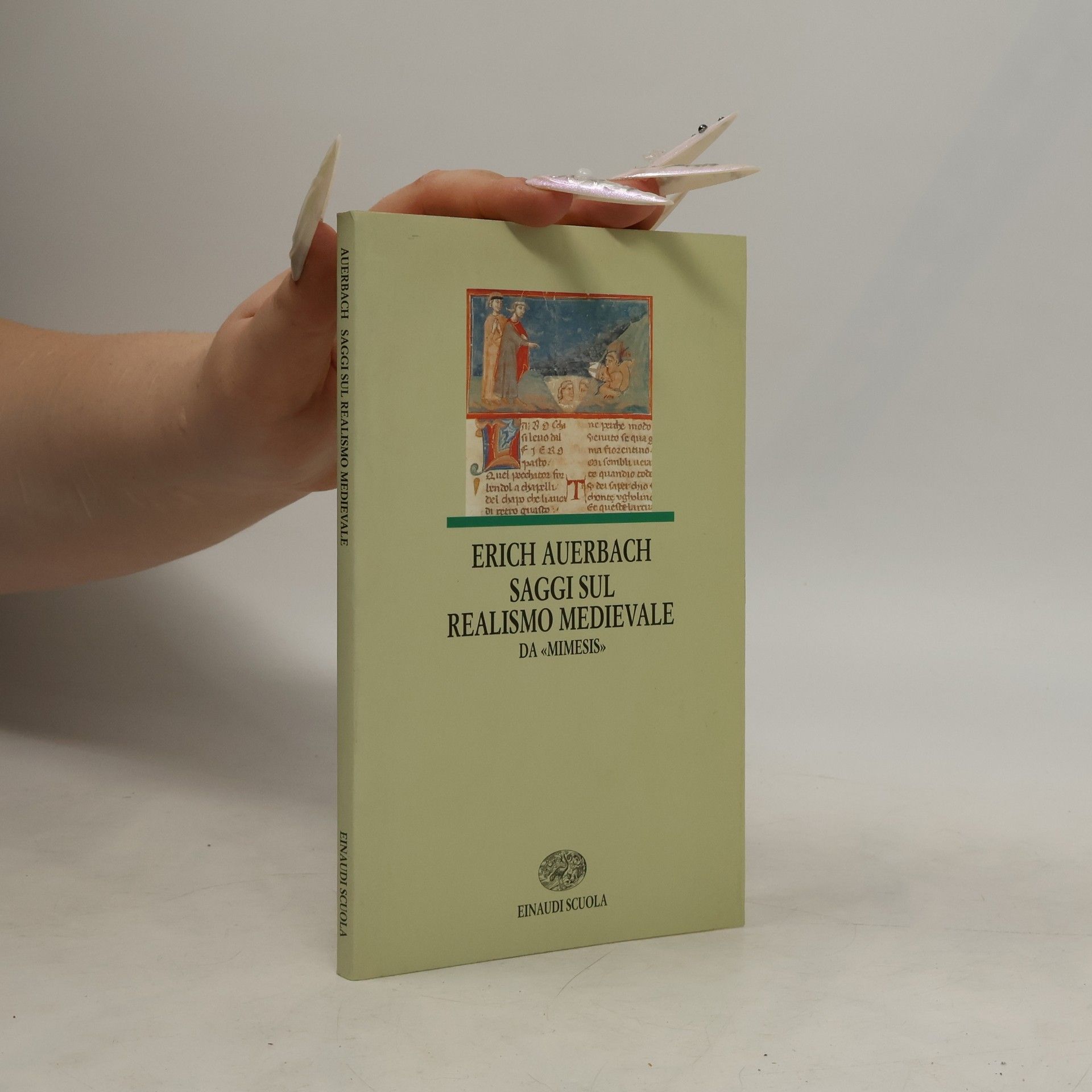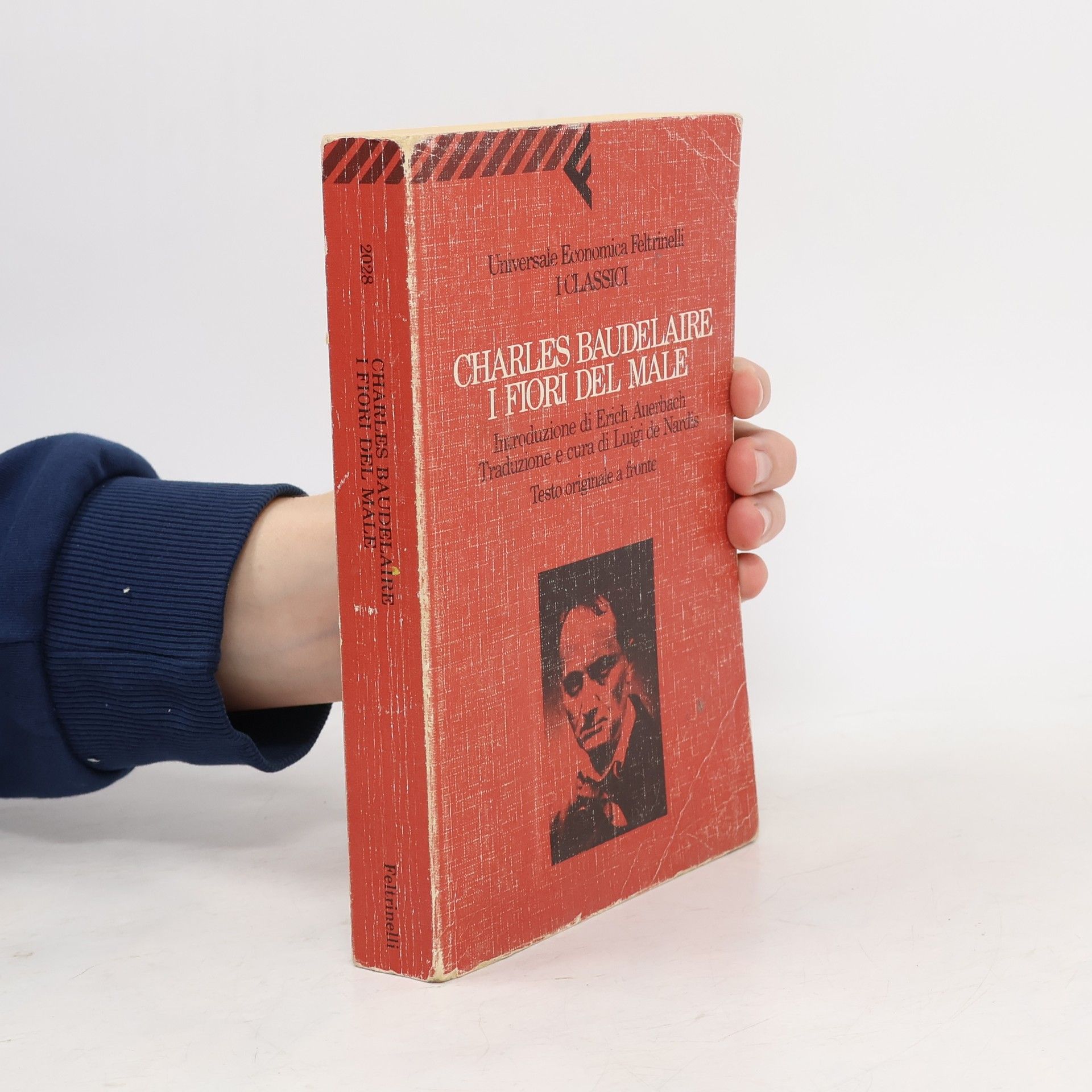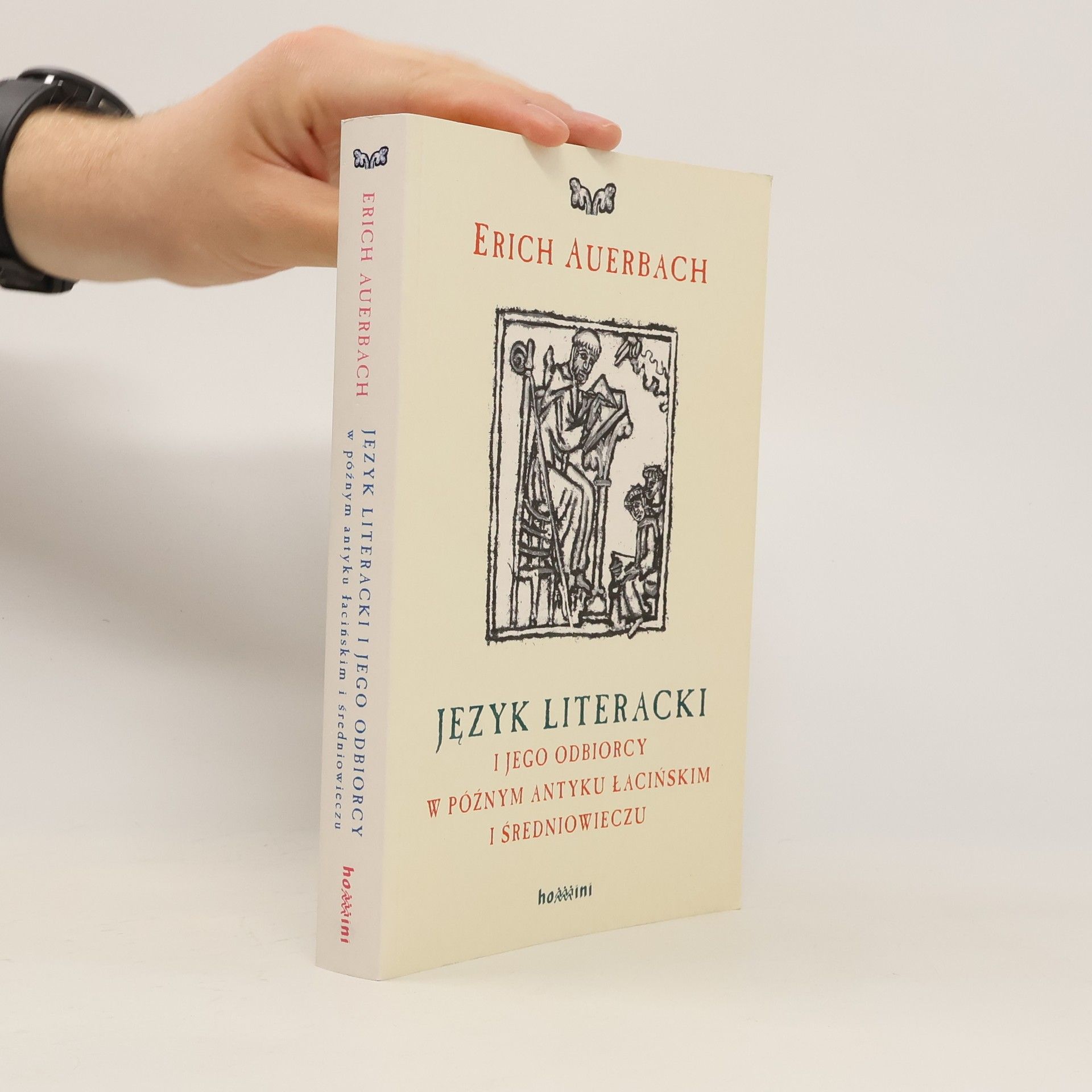Erich Auerbach Libri
Erich Auerbach fu un filologo il cui lavoro esplorò principalmente la critica e la storia letteraria. Il suo libro più celebre esamina la rappresentazione della realtà nella letteratura occidentale dall'antichità fino al XIX secolo. Auerbach analizza meticolosamente come gli stili e le tecniche letterarie si siano evoluti in risposta ai mutamenti sociali e storici. Il suo approccio enfatizza l'analisi testuale dettagliata per svelare contesti storici e culturali più profondi.






Saggi sul realismo medievale. Da «Mimesis»
- 158pagine
- 6 ore di lettura
Mimesis
- 616pagine
- 22 ore di lettura
Erich Auerbach's 'Mimesis' still stands as a monumental achievement in literary criticism which has taught generations how to read Western literature. This expanded edition includes an introductory essay by Edward Said, and an essay by Auerbach, translated into English, in which he responds to his critics.
Kultur als Politik
- 200pagine
- 7 ore di lettura
Znajdujemy tu frapujace ujecie procesu przejscia od literatury antyku do literatury sredniowiecza synteze rozwoju wczesnosredniowiecznej prozy obraz ksztaltowania sie literatury chrzescijanskiej na Zachodzie i odrodzenia jezyka literatury klasycznej w Europie XII wieku Wielki badacz pozornie kresli tylko dzieje stylistyki dawnego pismiennictwa w rzeczywistosci jednak probuje podobnie jak w Mimesis kierujac wzrok w przeszlosc przyjrzec sie narodzinom umierajacej dzis kultury Cywilizarja europejska zbliza sie do kresu swego istnienia jej wlasna do niej tylko ograniczona historia wydaje sie konczyc Jako integralna calosc zdaje sie zmierzac do rychlego upadku Wydawalo mi sie i nadal wydaje ze nadszedl czas kiedy trzeba podjac probe zrozumienia owej historycznej calosci jeszcze wobec jej zywej egzystencji i zywej swiadomosci jej istnienia
Images of music
- 320pagine
- 12 ore di lettura
Dante als Dichter der irdischen Welt
- 240pagine
- 9 ore di lettura
Der Kulturhistoriker Erich Auerbach (1892-1957) zählt zu den bedeutendsten Kulturwissenschaftlern und Romanisten des 20. Jahrhunderts. Wie viele andere bedeutende Gelehrte emigrierte er früh aus Deutschland, um der Verfolgung durch die Nationalsozialisten zu entgehen. Bereits 1929 erschien sein Buch zu Dante, das trotz des etwas komplizierten Titels einen runden Gesamtüberblick über das dichterische Schaffen des italienischen Nationaldichters gibt. Auerbach spürte in der Göttlichen Komödie, Dantes Hauptwerk, viele Realismen auf. Rückbezüge auf die Welt des Irdischen bleiben auch im Grauen der Hölle, in der Hoffnung des Fegefeuers und in der religiösen Ekstase des Paradieses deutlich. Dante schildert beispielsweise viele Zeitgenossen und ihre Sünden, die dann entsprechend gebüßt werden. Bei Auerbach wird das Universum Dantes eindrucksvoll lebendig.
Gesammelte Aufsätze zur romanischen Philologie - Studienausgabe
- 455pagine
- 16 ore di lettura
Seit dem Erscheinen von "Mimesis. Dargestellte Wirklichkeit in der abendländischen Literatur" im Jahr 1946 ist Erich Auerbach (18921957) als Klassiker der Geisteswissenschaften bekannt. Die Entstehung des Buches im Istanbuler Exil ohne westliche Bibliotheken ist legendär. Weniger bekannt sind seine luziden Essays und detailreichen Studien zur romanischen Philologie, die Gustav Konrad und Fritz Schalk posthum ergänzt um wichtige Rezensionen herausbrachten. Methodisch stand der deutsch-jüdische Gelehrte sowohl der Frankfurter Literatursoziologie seines Freundes Walter Benjamin nahe als auch der hermeneutischen Tradition an der Universität Marburg; zudem gibt es Nähen zur Ikonographie der Warburg Schule. Das Nachwort gibt im wissenschaftshistorischen Rahmen eine Skizze von Erich Auerbach als Kulturphilosophen im Exil, der eine vieldeutige wie außergewöhnliche Position zwischen jüdischen, christlichen und säkularen Traditionen des Denkens einnimmt. Die Neuausgabe der "Gesammelten Aufsätze" wurde um vier Arbeiten werkgeschichtlich ergänzt. Eine von ihnen, "Vicos Auseinandersetzung mit Descartes", galt bislang als verschollen und wurde erst kürzlich gefunden. Eine ausführliche Bibliographie schließt Lücken der Primärliteratur.


